Read about Toowoomba’s brushes and battles with breast cancer
It’s a disease that impacts one in seven Australian women, but after battling another form of cancer less than a year ago, Larissa Rowbotham doesn’t want to be part of the statistic. This Breast Cancer Awareness month, read the stories of the fighters, survivors and their allies.
News
Don't miss out on the headlines from News. Followed categories will be added to My News.
Larissa Rowbotham was clinging to the hope that the lesion in her right breast was nothing, but after coming out of the other side of a battle with stage three bowel cancer earlier this year, the mother of two was already preparing to put up a fight.
Ms Rowbotham had just six short months where she thought she was cancer free, but a trip to the doctor in September revealed her liver was harbouring three tumours and there was a mass in her breast.
Breast cancer is the most common cancer among Australian women and across the country about 20,428 women have been diagnosed with the disease this year alone.
In southwest Queensland, about 254 new cases are diagnosed annually.
After the growths were detected in her liver, Ms Rowbotham said she couldn’t afford to become part of the stark figures.
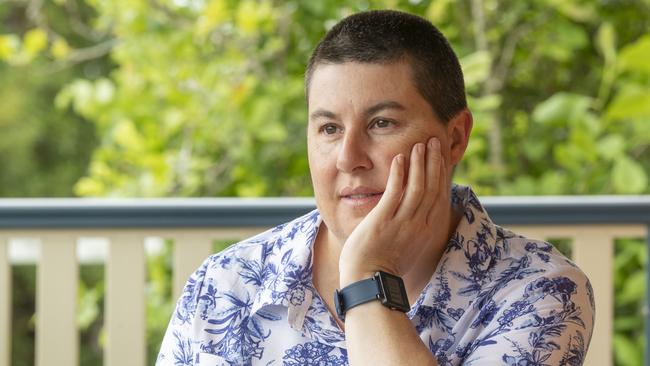
“My health started to go downhill in July this year; I just was breathless and had pain in my right side from my shoulder to my hand,” Ms Rowbotham said.
Unable to secure an appointment for a mammogram and biopsy yet, the 44-year-old is worried crucial time is passing by.
“I am very, very concerned that this cancer is growing inside of me, and nothing’s happening … I’m worried that it’s spreading,” she said.
While a tumultuous journey lies ahead for Ms Rowbotham, her husband Brett and their two children Mitch, 15 and Ella, 14, the Toowoomba woman has come out wanting to make peace with the people in her life.
“I want to mend bridges … If anything happens, like if I do only happen to be around for the next two or three years I want to go knowing I love everyone, and I’m sorry for everything I may have done,” she said.
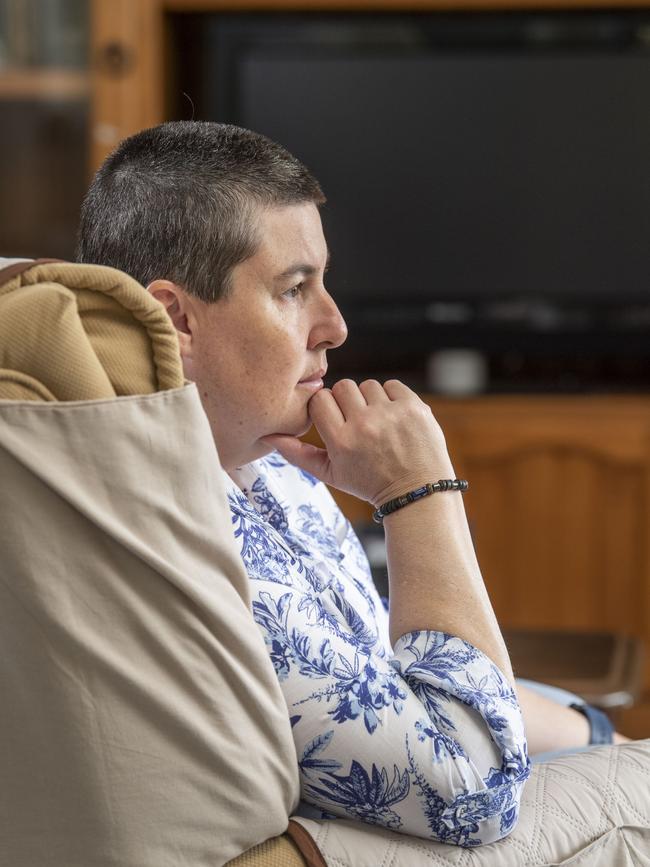
Lynette Bryant has lived through the worry Ms Rowbotham holds, after a routine check up in 2003 revealed three quarters of her breast had calcification.
When the then 40-year-old told her doctor her breast was sore, likening it to hormonal changes, she was urged to take a mammogram.
“I looked at her and I said, ‘don’t I have to be 50 for that?’” Mrs Bryant said.
While about 80 per cent of breast cancer diagnoses are made up of women aged 50 and over, what was a precautionary measure turned into her worst fear.
“I was just gobsmacked. I remember just sitting there looking at this mammogram … I just thought I’m going to die,” Mrs Bryant said.
“As a mother of four children ranging from five to 17 and having a husband, it was absolutely devastating.”
The five-year relative survival rate for all cancers in the region sits at 73 per cent, so when the now 60-year-old was told by doctors she no longer had to take the adjuvant recovery treatment, she was scared.
“I was just in tears, and I felt so vulnerable because that was my lifeline,” she said.
Having lived without cancer for a significant time now, Mrs Bryant is cautious of calling herself “cancer-free” and goes for annual breast screenings.
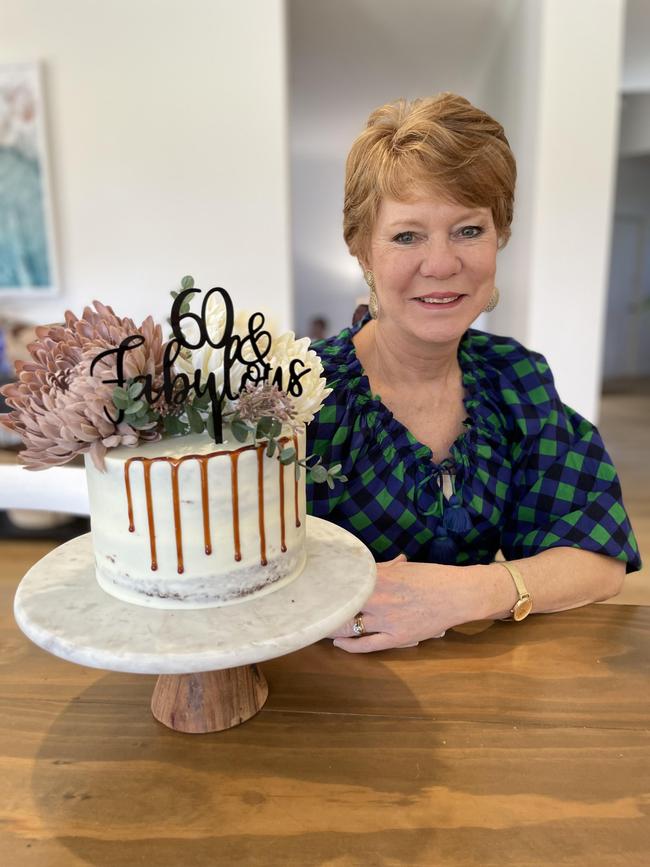
Passionate about women’s health, she has featured as a guest speaker at a breast cancer awareness event.
“My biggest advice is that if there’s anything that doesn’t sit right with you, just keep pushing, even if your doctor says it’s fine.”
One of the women Mrs Bryant helped was Pamela Schramm, who during her cancer journey, penned a poem to her children to explain the disease, which turned into a book with a thousand copies called My Strong Mummy.
The mother of three found out she had a rare and aggressive form of the disease when she was breastfeeding her third child.
During the sleepless nights brought on by worry and side effects of chemotherapy, Mrs Schramm never imagined the words she wrote in the late hours of night would one day be read by so many families.
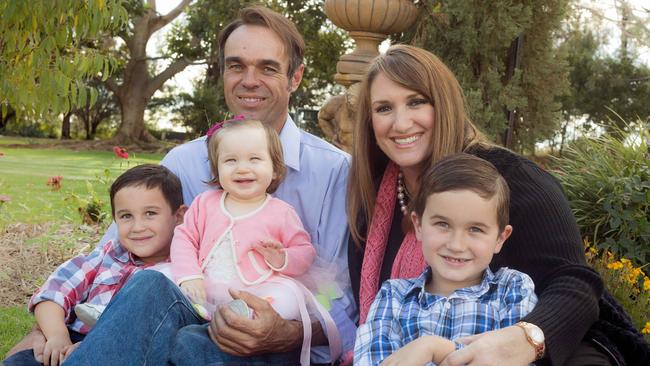
Now working part-time as a teacher’s aide, the book sits proudly in the school library.
“I love having all the kids come up to me and say that they’ve read it, some have no connection to breast cancer whatsoever and some enjoyed reading it because they’ll say their grandmother had cancer or something,” Mrs Schramm said.
While the doctors have cleared her of cancer, the 48-year-old will always be on high alert.
“I would rather have in the back of my mind that I need to look out for myself, because it can reappear at any stage,” she said.
Getting ahead of potential risks by getting a hysterectomy, going for frequent check-ups, eating healthily and minimising stress has given Mrs Schramm reassurance.
“I tell my friends, stress changes your body. If you don’t look after yourself, something bad could happen,” she said.
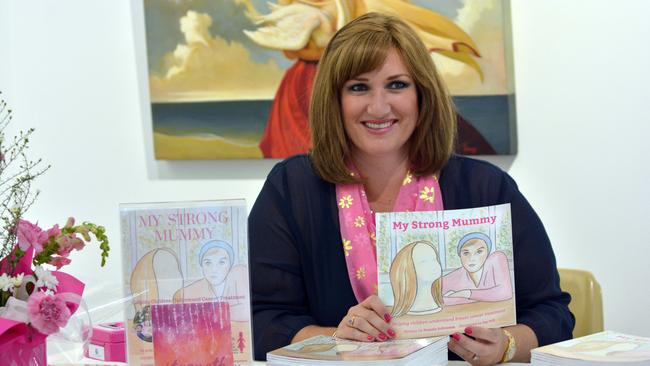
Having worked in a breast cancer speciality role for more than two decades, Marion Strong agrees with Mrs Schramm that self-care is imperative.
The breast care nurse at Toowoomba Hospital says listening to her patients helps her navigate what is needed in an emotionally intense ward.
“Every working day brings patients experiencing a variety of emotional responses from tears to anger, fear, anxiety and depression,” the Darling Down nurse said.
“Cancer is a long haul, (loved ones’) help extended over time will be invaluable … keep visits and phone calls short and sweet; cancer treatment is tiring.”
Since 1992, when Toowoomba’s BreastScreen Clinic opened, more than 444,000 women have been screened.
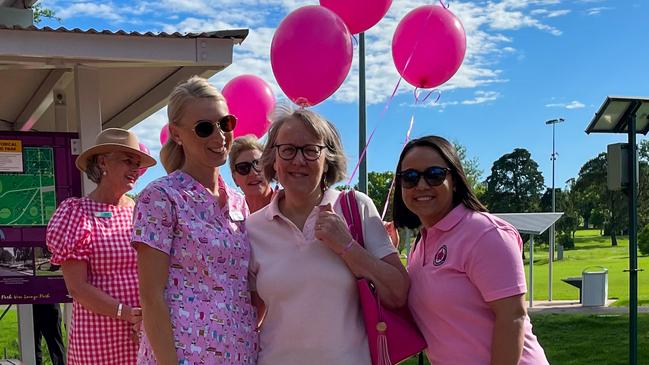
Now, 30 years later, cancer support has come a long way with the FitLab having helped more than 200 women since 2018 with the Fight Back With Fitness program, which offers scientifically-based but also a social support network for participants.
FitLab high performance director Steve Nance says scientific evidence suggests moderate intensity exercise reduces the risk of cancer coming back.
“It’s very, very important that people can talk to other ladies in similar circumstances, taking similar drugs, and having similar treatments. It’s enlightening to do work with them,” Mr Nance said.
More Coverage
Originally published as Read about Toowoomba’s brushes and battles with breast cancer





